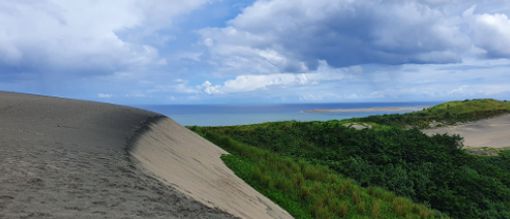Since its independence from Australia in 1975, Papua New Guinea's economy has relied on the large-scale extraction of its natural resources. This was meant to improve the lives of its citizens, but in reality, the country has fared worse than its Pacific neighbours.
The value of the resources extracted is huge – and unmatched by the standard of living for most of PNG's people.
The real beneficiaries are foreign mining, oil and gas giants, as well as major players in the logging and oil palm industries. Meanwhile, Papua New Guineans are the ones who have beared the brunt of the resulting environmental destruction.
We published these findings in our joint report with Act Now! PNG and the Oakland Institute, 'From Extraction to Inclusion'.
RESOURCE EXTRACTION HAS FAILED TO IMPROVE LIVES. HERE'S WHY
COMPANIES BANK PROFIT OVERSEAS
The extractive industries tend to operate with little connection to the rest of the economy. Foreign companies bank most of their profits offshore, leaving local communities do deal with the social and environmental costs.
COMPANIES DON'T GIVE MUCH BACK
Fossil fuel companies contribute little to the public purse. In 2018, 6.5 per cent of sales from the mining and petroleum sector went to government.
HEALTH AND EDUCATION SUFFER
The growth of resource extraction sectors has been marred by poor governance, theft of public money and corruption, taking away much needed funding from health and education services.
EXTRACTION CREATES VERY FEW JOBS
About 90 per cent of Papua New Guineans work in the informal economy, mostly growing and selling food crops. The mining, oil and gas sector only creates jobs for 0.3 per cent of the workforce.
“What we would need to do is think more strategically, think more innovatively, about what we can do that does not end up destroying our forests and our way of life and our waterways.”
—GARY JUFFA, GOVERNOR, ORO PROVINCE
LATEST NEWS
Storm brewing over Pacific as climate and debt crises collide
Categories:
Climate Justice,
Changing PNG’s development path,
Sustainable economies,
Drop the debt
Release Date: 04 Oct 2022
Papua New Guinea leads on climate targets, lags on action
Categories:
Latest News,
Climate Justice,
Changing PNG’s development path,
Nogat Coal
Release Date: 04 Nov 2021
Community struggling to access water and basic needs years after eviction
Categories:
Changing PNG’s development path,
Land and forests,
Paga Hill
Release Date: 09 Nov 2021
Challenging extractive models of development at the 2021 Research for Development Impact Conference
Categories:
Mining,
Climate Justice,
Changing PNG’s development path,
Nogat Coal
Release Date: 15 Sep 2021





